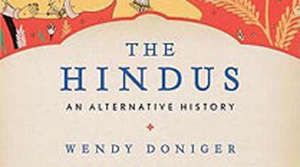 New Delhi, Feb 14: Under criticism for withdrawing US scholar Wendy Doniger’s book, ‘The Hindus: An Alternative History’, from the country, Penguin Books India on Friday said it had an obligation to respect laws even if they were “intolerant and restrictive”.
New Delhi, Feb 14: Under criticism for withdrawing US scholar Wendy Doniger’s book, ‘The Hindus: An Alternative History’, from the country, Penguin Books India on Friday said it had an obligation to respect laws even if they were “intolerant and restrictive”.
In its statement, released two days after the controversy broke, the publisher added that it has a moral responsibility to protect its “employees against threats and harassment”.
The settlement reached this week (with the petitioners who objected to the contents of the book saying it hurt the sentiments of Hindus), “brings to a close a four year legal process in which Penguin defended the publication” of the Indian edition of the book.
Following the out-of-court settlement, Penguin agreed to recall and pulp all copies and ensure that the book was completely withdrawn or cleared from the country within six months.
“We have published, in succession, hardcover, paperback and e-book editions of the title.
“International editions of the book remain available physically and digitally to Indian readers who still wish to purchase it,” the publisher added.
“We stand by our original decision to publish the book, just as we stand by the decision to publish other books that we know may cause offence to some segments of our readership.
“We believe, however, that the Indian Penal Code, and in particular Section 295A, will make it increasingly difficult for any Indian publisher to uphold international standards of free expression without deliberately placing itself outside the law,” the publisher said.
This is an “issue of great significance, not just for the protection of creative freedoms in India but also for the defence of fundamental human rights,” it said.
Affirming its belief in every individual’s right to freedom of thought and expression, the publisher said, “This commitment informs Penguin’s approach to publishing in every territory of the world, and we have never been shy about testing that commitment in court when appropriate.
“At the same time, a publishing company has the same obligation as any other organisation to respect the laws of the land in which it operates, however intolerant and restrictive those laws may be.
“We also have a moral responsibility to protect our employees against threats and harassment where we can,” it added.





Comments
Add new comment